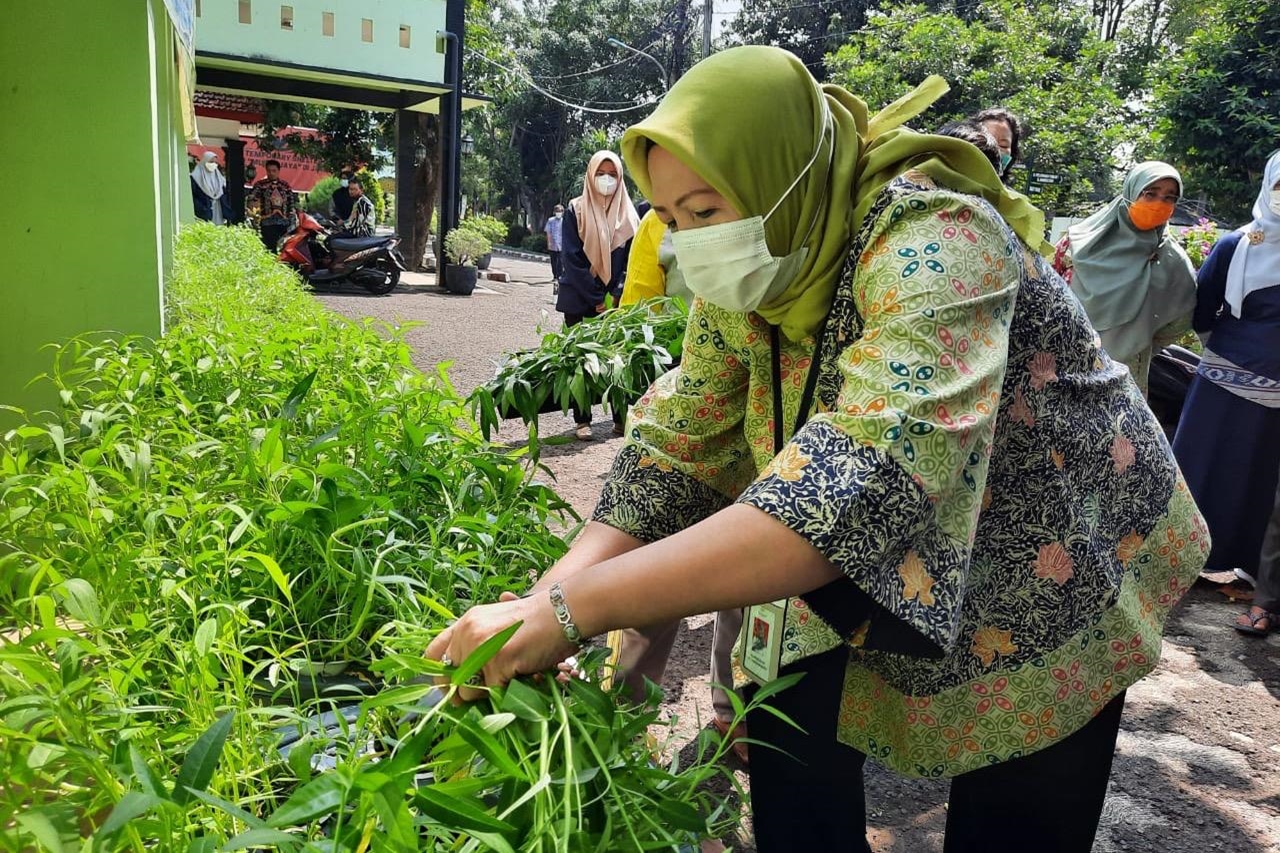Training Center of "Mulya Jaya" Teaches Various Planting Methods to Beneficiaries

JAKARTA (27 April 2021) – Training Center of
"Mulya Jaya" Jakarta, which is one of the Ministry of Social Affairs'
Technical Implementing Units, continues to innovate to create various types of
skills training for Beneficiaries (PM). One of them is by training in planting
and fish cultivation skills. This is following the direction of the Minister of
Social Affairs, Tri Rismaharini, that PM must have food security independently
after returning to the community.
Center of "Mulya
Jaya" teaches planting methods using hydroponic, aquaponic, and organic
methods. Of course, this method is taught by instructors who are experts in
their respective fields. The Head of Center, Ai Herliyah explained that these
various methods were taught to increase PM food security, meet basic
needs, or generate economic value by utilizing limited planting media.
"Currently we are
developing methods of planting by hydroponics, aquaponics, and organics. This
is an effort to foster food security in each family. So to meet daily needs
there is no need to buy. In addition, planting also does not require large
areas of land. A variety of simple media can be used, "explained Ai.
"The media used can
be buckets, sacks, polly bags, pipe, used plastic bottles, some are directly
planted in the ground, and now we can get the results", she added.
Today (27/4), PM and
employees harvest water spinach after being planted for three weeks using a
media bucket filled with catfish. This method is an aquaponics method, namely
an agricultural system that utilizes fish waste as nutrients for plants and
utilizes plants to control water quality for fish.
The benefits of using the
aquaponics method include saving water, not requiring large areas of land,
minimizing water waste, better quality vegetables, and fish because they are
chemical-free, and can meet household needs or for profitable commercial
purposes.
Siti Ropiah, PM, who
received residential care with her three children admitted that this was a new
knowledge and experience that was very useful for her.
"It's my first time learning to plant in this way, Ma'am. This is very useful for me because I can try to practice it to be able to increase my income," said Siti.
Other plants planted are pokcoy, spinach, radish, and various types of sweet potatoes such as cilembu, purple and yellow yams apart from growing kale.
 English
English
 Bahasa
Bahasa
